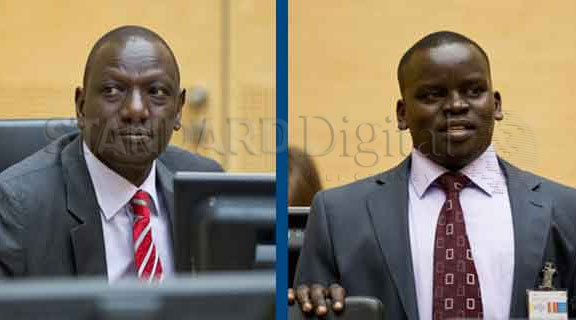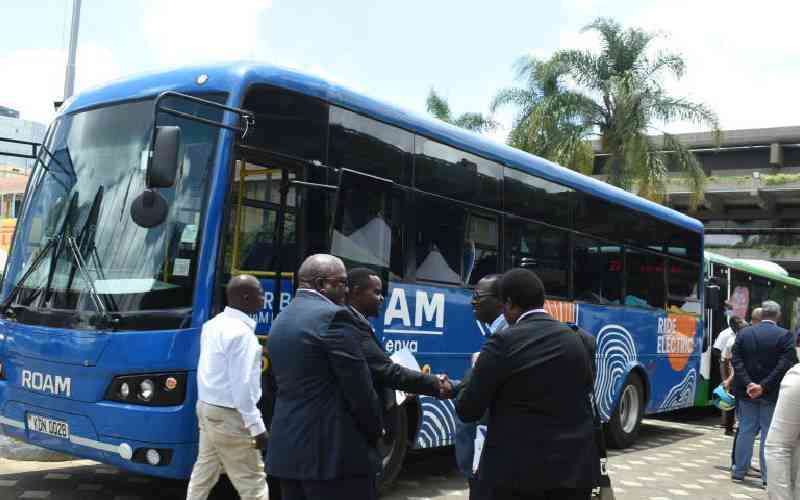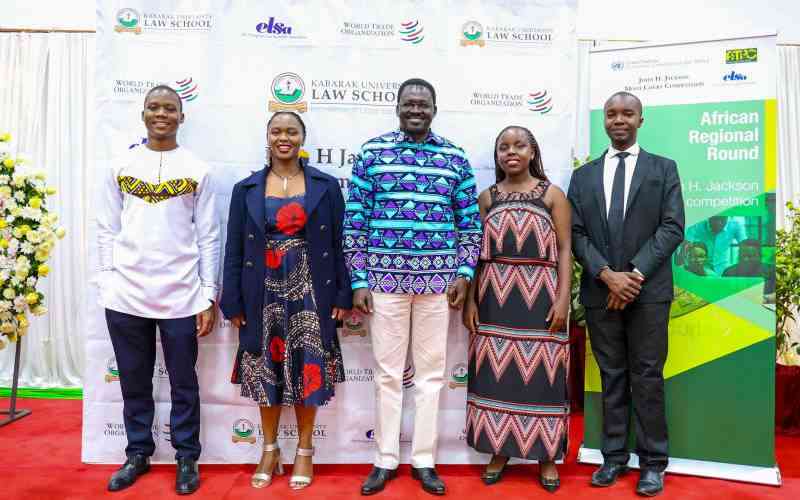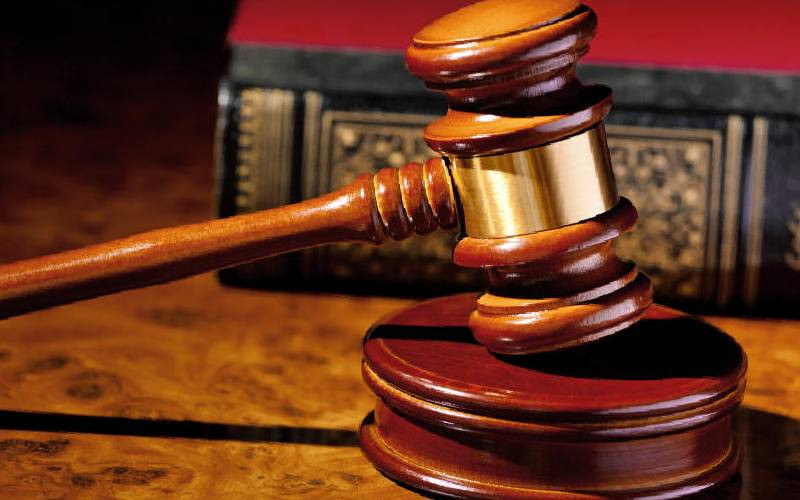 |
|
Deputy President William Ruto and radio journalist Joshua Sang. [Photo:File/Standard] |
By STANDARD REPORTER
Deputy President William Ruto’s quest to be exempted from attending all sessions of his trial in The Hague will receive the support of five African countries.
Tanzania, Burundi, Rwanda, Uganda and Eritrea had until yesterday to file submissions on the need to exercise flexible interpretation of Article 63 of the Rome Statute, which stipulates “the accused shall be present during the trial”.
The five nations had earlier sought and secured the International Criminal Court’s (ICC) judges permission to make presentation understood to lobby the court to allow Ruto room to execute his constitutional duties.
“Tanzania, Rwanda, Burundi, Eritrea and Uganda may file observations on the matters identified in the above-mentioned requests by 1600hrs on Wednesday, September 18, 2013,” the judges ruled.
“Mr Ruto and the Prosecutor may respond to any observations filed pursuant to paragraph (1) by 1600hrs on Friday, September 20, 2013,” they added.
The application by the African nations followed the appeal by Prosecutor Fatou Bensouda to contest the ruling by judges of Trial Chamber V to excuse Ruto from having to be present throughout the trial.
The countries sought to “address the importance of according Article 63 a broad and flexible interpretation, which encourages state co-operation in the widest possible set out circumstances and without jeopardising the constitutional responsibilities of leaders.”
Striking balance
Additionally, the countries said the flexibility will ensure that a “balance to be struck between those subject to the court’s jurisdiction but who also occupy high office”.
On its part, the Republic of Rwanda indicated that if authorisation were granted, it will “address the importance of according the right a broad interpretation” as well as the “competing rights and obligations which will converge when those who occupy high office become the subject of proceedings at the court”.
President Uhuru Kenyatta’s trial is scheduled to start on November 12.
Mr Ruto further indicated that “the requests present the court with the opportunity to engage with states [...] in respect of the proper interpretation of [Article 63 (1)” and that such engagement is particularly apposite in light of the arguments raised by both parties.”
The ruling by the judges to allow the countries to file “amicas curie” (friends of the court) submissions was seen as one that gave the African Union (AU) push on the Kenyan cases momentum.
Separately, the AU had written to ICC President Judge Sang-Hyung Song, on the matter. The letter alerts the ICC president on the decision of the 21st Ordinary Session of the Assembly of Heads of State and Government of AU requesting for a referral of the Kenya cases.
Stay informed. Subscribe to our newsletter
The judges allowed Ruto permission to not be continuously present in court during his trial, with the exception of specified hearings.
 The Standard Group Plc is a
multi-media organization with investments in media platforms spanning newspaper
print operations, television, radio broadcasting, digital and online services. The
Standard Group is recognized as a leading multi-media house in Kenya with a key
influence in matters of national and international interest.
The Standard Group Plc is a
multi-media organization with investments in media platforms spanning newspaper
print operations, television, radio broadcasting, digital and online services. The
Standard Group is recognized as a leading multi-media house in Kenya with a key
influence in matters of national and international interest.
 The Standard Group Plc is a
multi-media organization with investments in media platforms spanning newspaper
print operations, television, radio broadcasting, digital and online services. The
Standard Group is recognized as a leading multi-media house in Kenya with a key
influence in matters of national and international interest.
The Standard Group Plc is a
multi-media organization with investments in media platforms spanning newspaper
print operations, television, radio broadcasting, digital and online services. The
Standard Group is recognized as a leading multi-media house in Kenya with a key
influence in matters of national and international interest.








